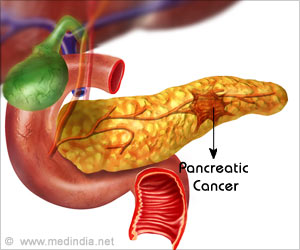A new protein 'dustman', has been discovered by cancer researchers, which helps a drug kill cancer cells, published in the journal on Monday.

The study, by Cancer Research UK-funded scientists at The Institute of Cancer Research, London, shows that a molecule – known as ’Cullin-5’ (CUL5) – behaves like a combined cleaner and dustman: sweeping up the proteins that tell cancer cells to divide continuously and consigning them to the cellular ’dustbin’ for disposal.
Their study shows that CUL5 works in opposition to another important molecule called HSP90 – one of the guardians of a cell’s dividing machinery – which scientists are already trying to block with drugs to stop cancer cells dividing.
Scientists found that when cancer cells are treated with drugs that block HSP90, the cleaning protein (CUL5) immediately stepped in to ’bin’ the proteins that were telling the cancer cell to keep dividing.
CUL5 also helps to pull the ’dividing-signal’ proteins away from the protective shelter of HSP90, and labels them with a tag that sends them straight to the cellular dustbin – effectively stopping cancer in its tracks.
Based on their findings, the researchers think that some patients may be resistant to the HSP90-blocking drugs if their cancer cells have lower amounts of CUL5.
Advertisement
Professor Paul Workman, study lead, deputy chief executive of The Institute of Cancer Research, London and Cancer Research UK life fellow, said: "We’ve known for some time that drugs that block HSP90 have great potential as treatments for cancers such as breast, bowel, lung and skin, and we had an initial clue that the protein CUL5 may be involved in some way in how these drugs work.
Advertisement
"What also surprised us was that CUL5 gets rid of many more of the cancer-causing proteins than we’d previously imagined and that it’s effective across several types of tumour. This suggests that a test for CUL5 in patients could help us tell whether they might respond to HSP90-blocking drugs, as well as pointing to new targets to develop more effective drugs."
Workman and his team are responsible for the discovery of one of the world-leading HSP90 inhibitor drugs, known as AUY922, which is being tested in large-scale trials in patients with drug-resistant breast and lung cancer.
Professor Nic Jones, Cancer Research UK’s chief scientist, said: "There’s still a lot we need to find out about HSP90, CUL5 and the other molecules involved in controlling how a cell divides, but studies like this make that picture clearer and give scientists potential new avenues to investigate.
"As we find out more about the molecules that cause cancer cells to keep dividing, it will help doctors to better tailor treatments for patients."
Source-Eurekalert















